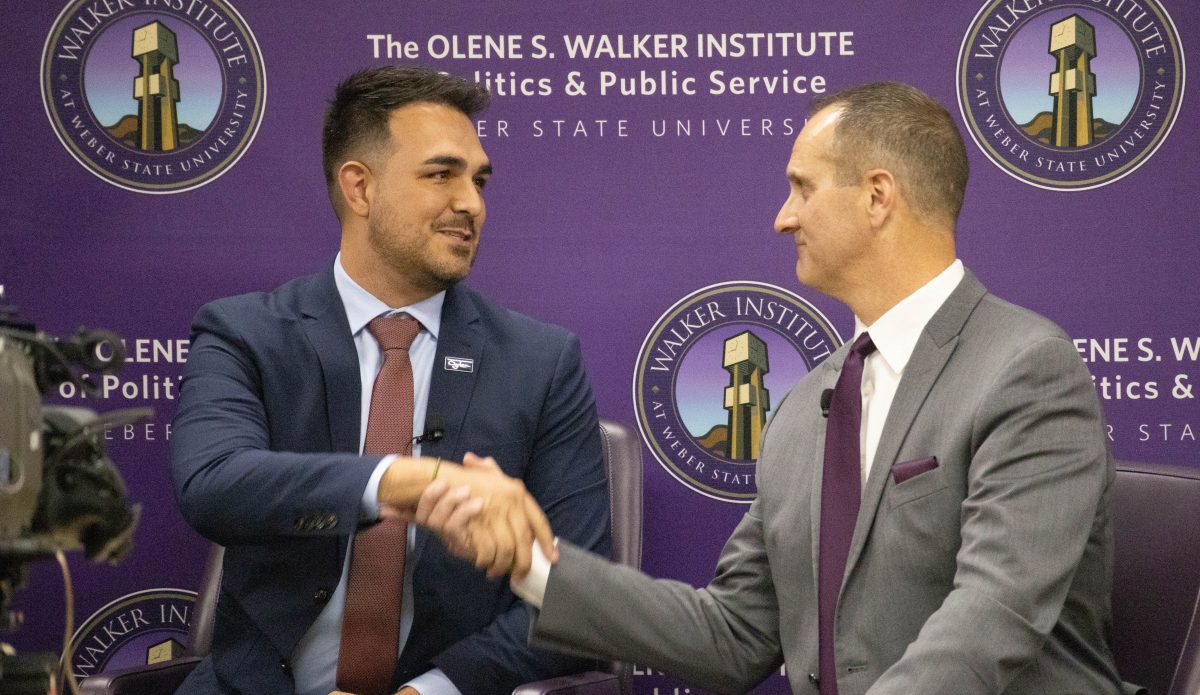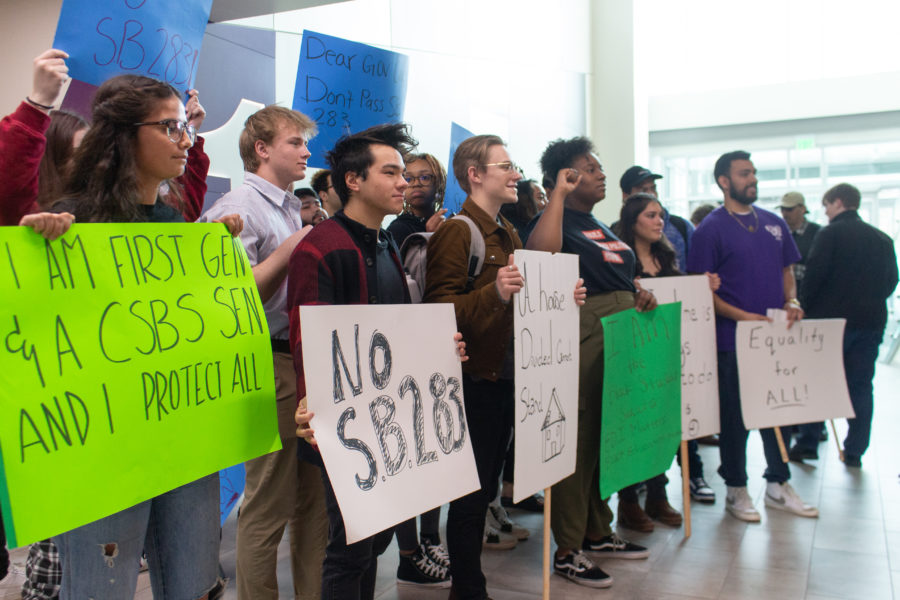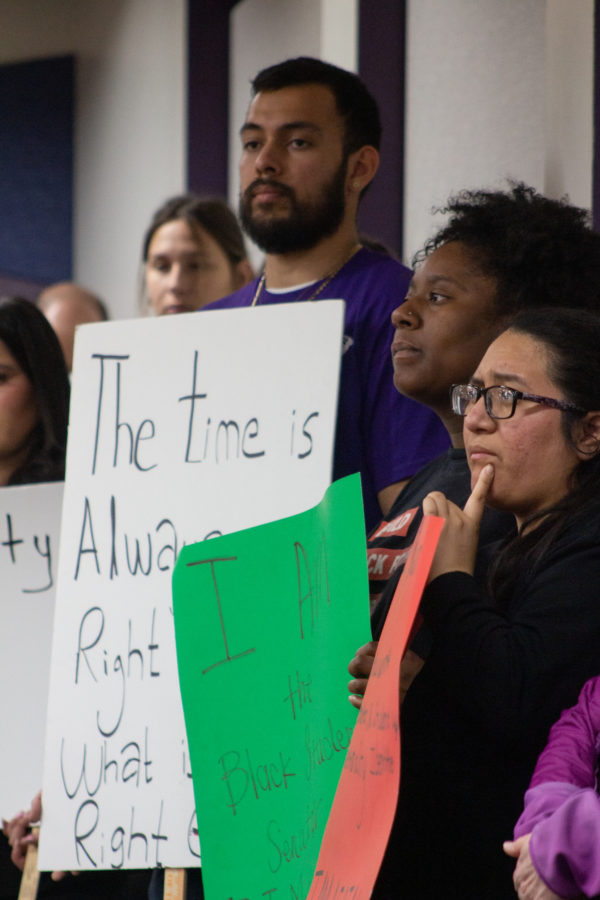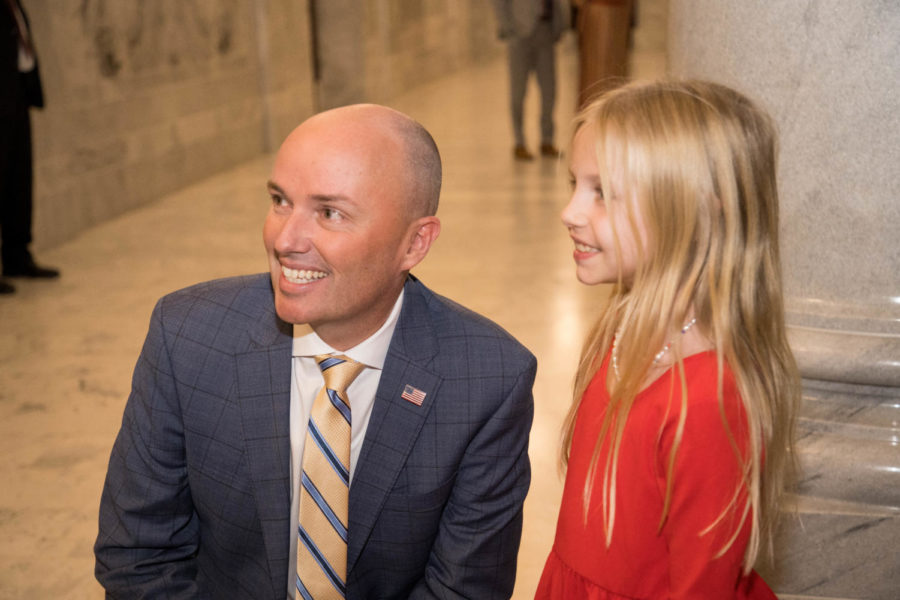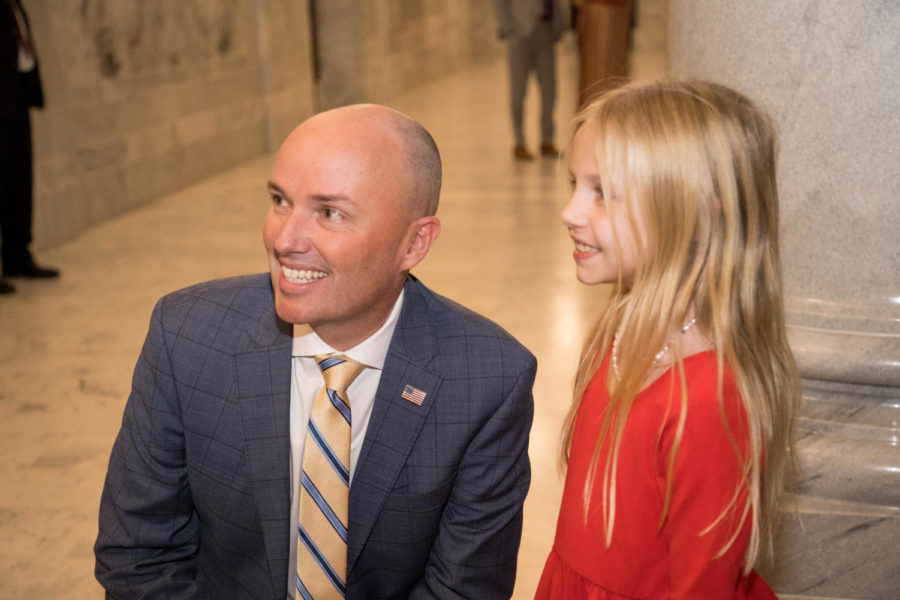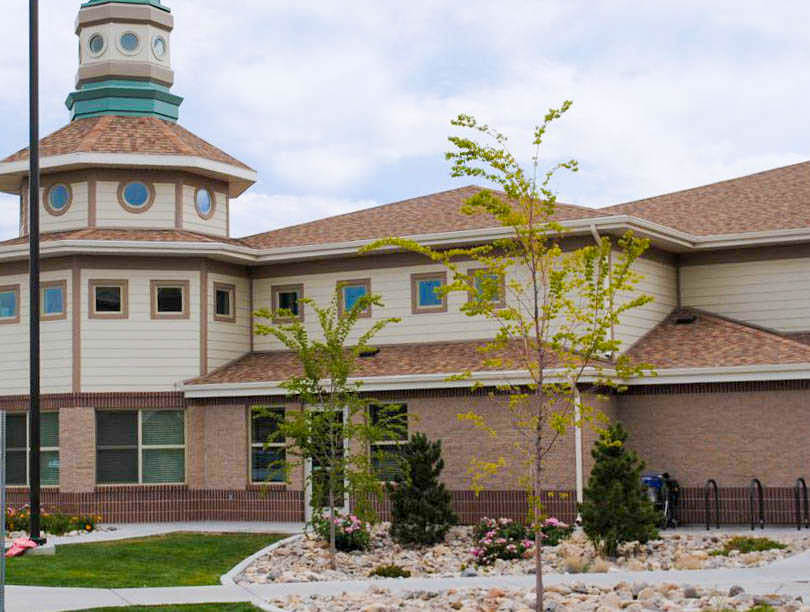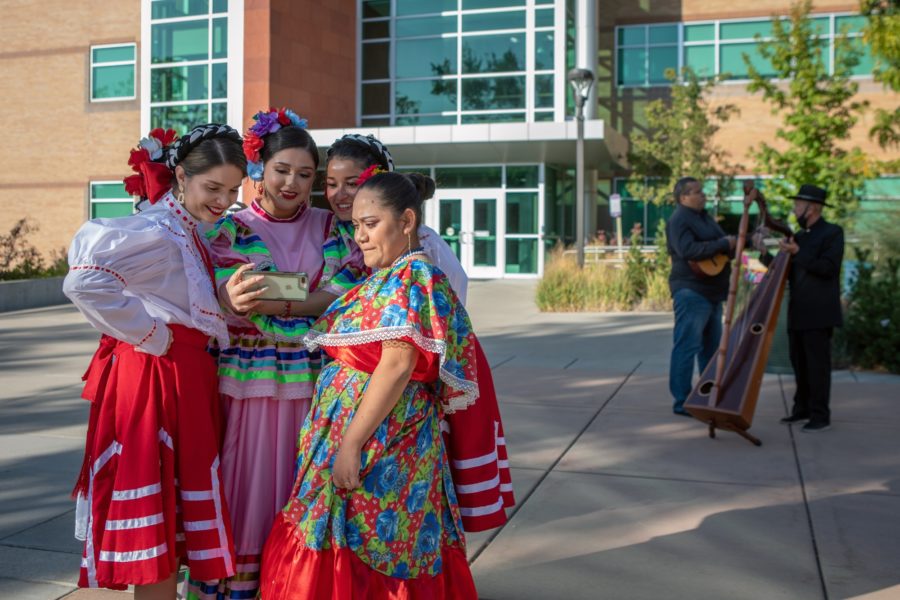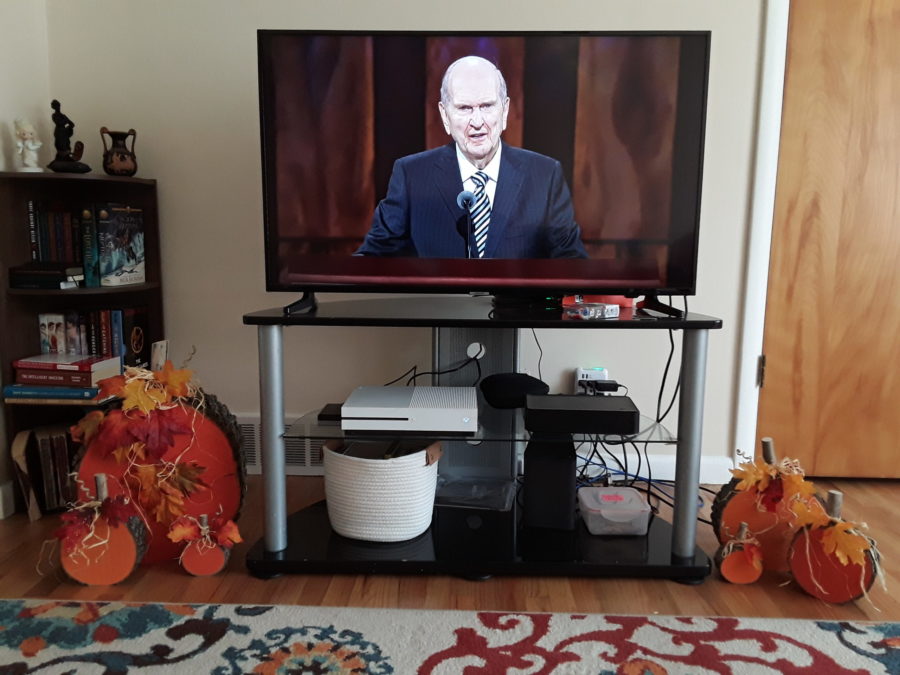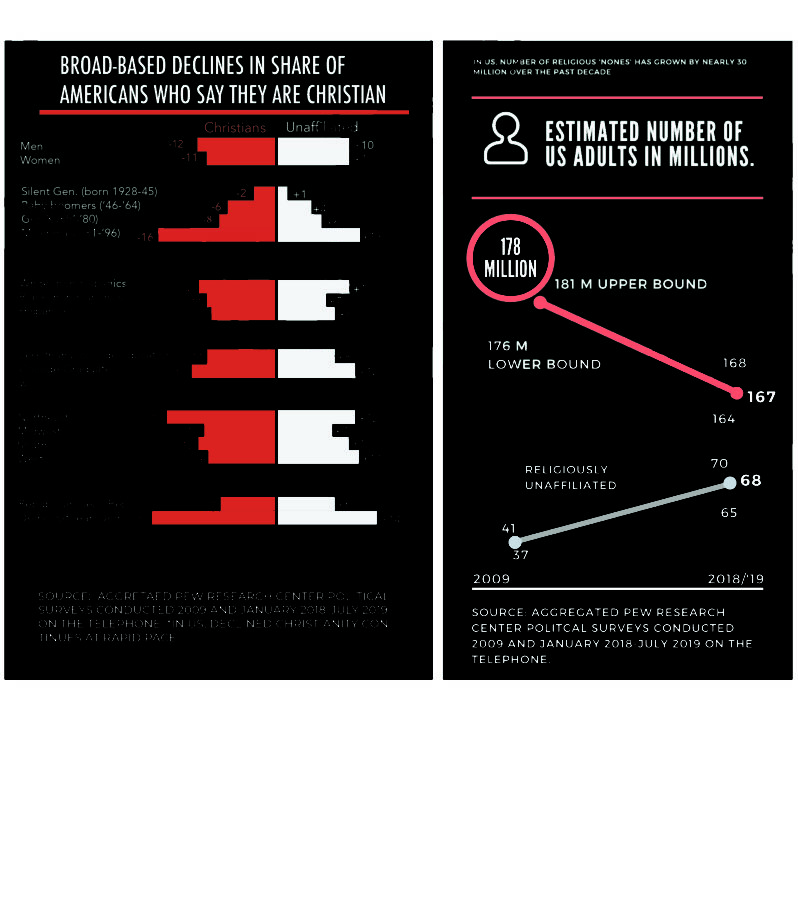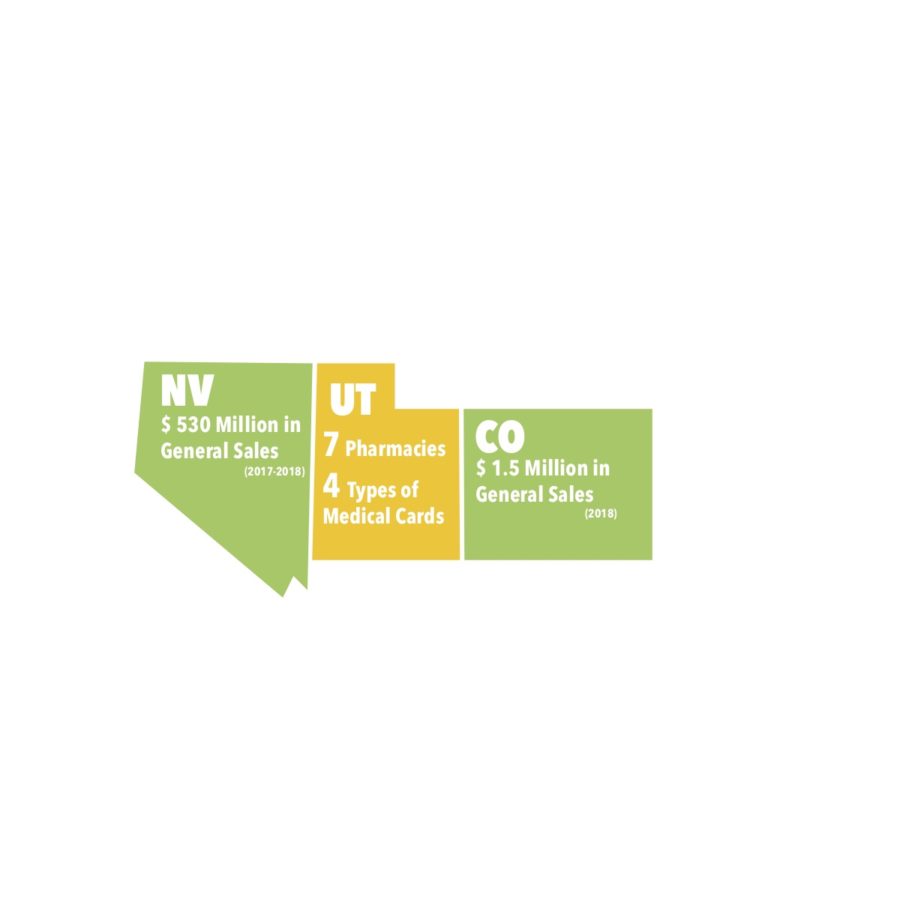

In a unprecedented turn of events, Utah became the 18th state to allow same-sex marriages within its borders.
On Dec. 20, U.S. District Court Judge Robert J. Shelby struck down the statewide outlawing of gay marriages in Kitchen v. Herbert, citing the unconstitutionality of the almost-10-year-old ban found in Amendment 3 of the state’s constitution.
The 53-page decision struck down the amendment, along with two other statutes listed by the state denying same-sex couples the right to marry. Shelby explained that he believed the amendment and others like it “deny its gay and lesbian citizens their fundamental right to marry and, in so doing, demean the dignity of these same-sex couples for no rational reason.”

With Shelby’s blessing opening the holiday weekend, hundreds of same-sex couples found their way to county clerks’ offices across the state and began taking out marriage licenses in what Gov. Gary Herbert described as “a chaotic situation in our state that requires an expedited judicial resolution.” True to his word, Herbert and Attorney General Brian Tarbet attempted to stay the order five times in an effort to bring the marriages to a halt.
While none of these attempts have been successful, the appeals process has taken the case higher up through the judicial system to Associate Justice Sonia Sotomayor of the U.S. Supreme Court. Since the ruling roughly two weeks ago, the state of Utah legally recognized an estimated 1,000 couples.
Weber State University sits in the heart of a deep-red state famous for its conservative values. With Shelby’s ruling remaining so far unfazed by judicial appeal, WSU is one university among many in the state divided by differing opinions.
One WSU student, who wishes to remain anonymous, believes Shelby is undermining the voices of the public. “I was frustrated that this judge overturned an amendment that was voted on by a two-thirds majority of the people of the state — a majority that he is not a part of, as he lives in Colorado.” The student said that if the issue were once again brought to a vote, Amendment 3 would still stand. “Utah’s marriage values are deep, deep-seated in a major part of the population. It may not have a full two-thirds majority, but I do believe it would still pass.”
Richard Price, WSU assistant professor of political science, said he does not believe the state’s adoption of Amendment 3 in 2004 to be an exact estimate of public approval.
“It’s not accurate to say 66 percent of Utahns at the time approved (Amendment 3). I looked up the turnout numbers, and from what I found, it said 57 percent of Utah voters showed up. So if you multiply those numbers together, it comes up to 38 percent of eligible Utah voters voted for it. That doesn’t mean that others wouldn’t have. But 66 percent of the people who showed up did.”
Price said a more recent study done by Matthew Frei, a student research fellow at Brigham Young University’s Center for the Study of Elections and Democracy, showed that opposition to gay marriage in the state of Utah has dropped to 29 percent as of February 2012.
The Church of Jesus Christ of Latter-day Saints issued its own statement regarding the Amendment 3 ruling, stating it believes 2004 voters “did the right thing by providing clear direction in the state constitution that marriage should be between a man and a woman, and we are hopeful that this view will be validated by a higher court.”
Despite the divided opinions of Wildcats, WSU has already taken strides to uphold the new law. As of Jan. 3, the administrative services of WSU announced that the Public Employees Health Program, which provides health care to WSU faculty and staff, will now extend benefits to same-sex legal spouses.
Adrienne Andrews, WSU assistant to the president for diversity, said she thinks this policy change will help to positively affect WSU as a demonstration of WSU’s culture of diversity and inclusion. “As we seek to support students, faculty and staff, it is exciting to see the state doing similar work. As most people now know, health care benefits are one of many ways that this policy change is affecting people on campus. Recognition of relationships is a hallmark of equality. This will likely allow individuals the ability to share a family photo on their desk or even share their partner’s name without fear.”
Senior Alisha Stucki recalled that in the famous court case Loving v. Virginia that dealt with interracial marriage in 1967, some citizens of states who did not support the ruling also cited public opinion as a reason for dismissal of the case. “The rulings that have changed history have not come from the minds of people; they’ve come from the minds of judges . . . Would interracial marriages be allowed today if the people would have been able to decide? We wouldn’t know. It could have been another 20 years before they would have been allowed.”
Despite the official court ruling that stated county clerks were to provide marriage licenses to couples with the proper paperwork, some offices refused to do so after government officials, usually under orders from Herbert, advised against it. Reports indicate that the Box Elder, Cache, Juab, Morgan, Piute, San Juan and Utah counties did not offer licenses to couples, who were often greeted by locked doors and explanations taped to the windows.
Marion Edmonds, Ogden OUTreach executive director, was present at many of the county clerks’ offices during that weekend, including the Morgan County Clerk’s Office, where clerks began refusing to administer licenses. “There weren’t enough affirming clergy, and we had to ask people to become officiants to help meet the demand for wedding ceremonies . . . The Monday right after the ruling was hectic, and now it’s easier to be sure that couples have officiants for their weddings, and clergy if they wish.”
Stucki said she was “freaking ecstatic” about the ruling, despite those who disagree with it. “People can have their beliefs. I’m not going to fight someone or try to change someone’s beliefs who say ‘it’s just wrong’, because I can’t fight that. . . . All I can try to do is befriend that person.”
Reactions to the Dec. 20 ruling have ranged on both sides from online petitions to rallies, and even one man in central Utah who has been fasting in an attempt to encourage the state of Utah to nullify Shelby’s ruling by simply ignoring it.
Stucki said she feels the majority of her peers are open-minded, that many simply don’t understand. “It’s about rights for us, but it’s about our lives more. If people could see that it’s about our lives and not just look at us as a huge statistic — look at us as people.”









